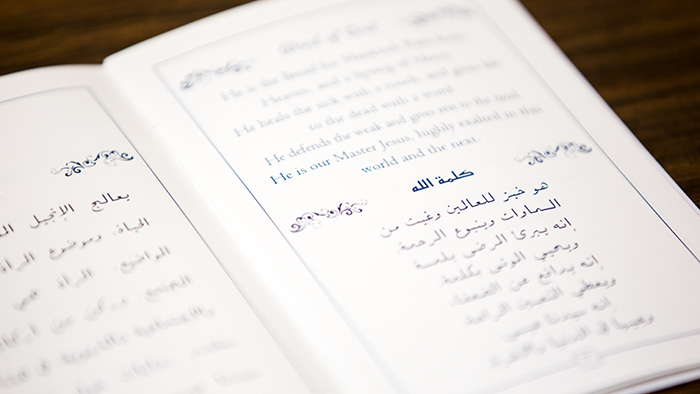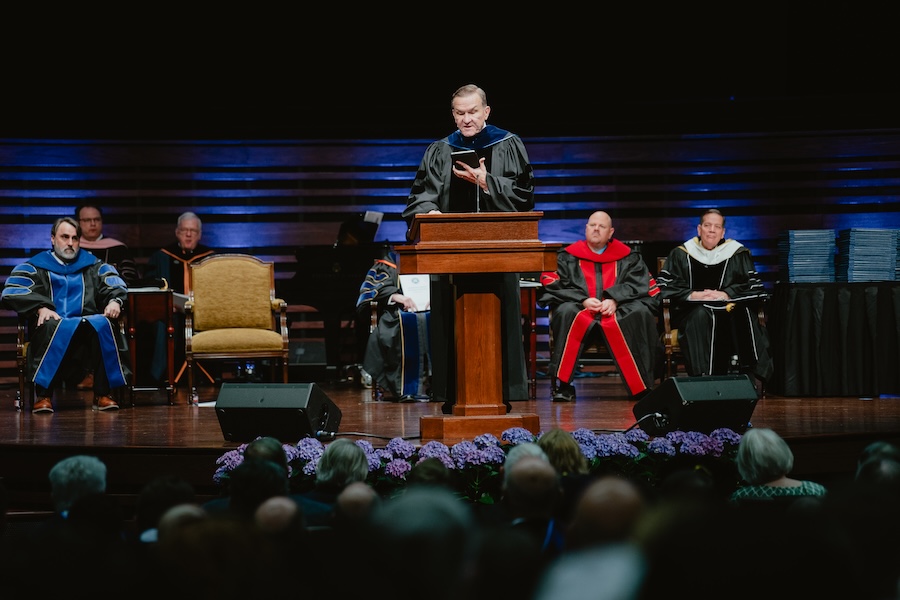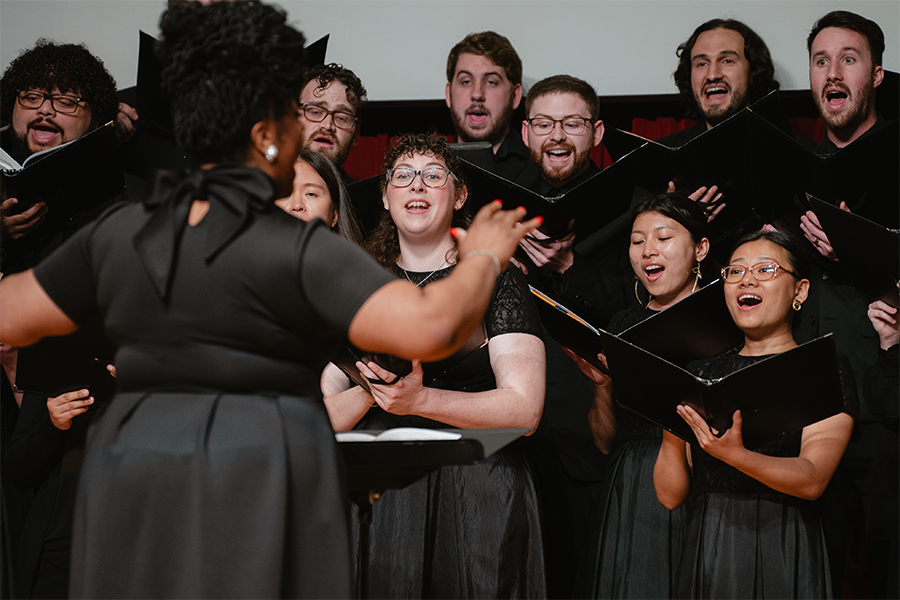Witnessing opportunity arises in God’s precise timing

Many people may think that a mission trip is over when they head to the airport on the last day in order to fly home. In fact, this is what Abigail Maltempi, a student in the College at Southwestern, assumed when she was riding a shuttle to the airport in St. Louis on the last day of Crossover, June 11. But when a Middle Eastern man stepped onto the same shuttle on the way to the airport, Maltempi quickly remembered something that God had told her to keep in the front of her Bible all week: an Arabic-language Gospel tract.
“I remember a few times that week where I almost took it out,” Maltempi says, “but God reminded me that I may run into an Arabic-speaking man or woman who needed to hear the Gospel and the hope of Jesus. … And lo and behold, it came true!”
Recalling a quote from The Lord of the Rings, Maltempi concludes, “God is never late or early; He arrives precisely when He means to. Even on the way to the airport, our God is not late, and so we must obey.” In Maltempi’s case, obedience meant sharing the Gospel at least one more time before stepping onto the plane home.
Maltempi engaged the Middle Eastern man in evangelistic conversation by first asking simple questions. “I simply asked him questions that may concern him,” she says. “I did not mention, ‘Where would you go if you died today? Heaven or hell?’ No. I showed Jesus as Savior and Lord in my life. I remained intentional to him in our conversation, asking poignant questions concerning his life.”
Maltempi learned that the man is an engineer who lives in the U.S. but works in Dubai, which is why he was going to the airport. When she asked him about his education, he revealed that he previously studied theology, having attended both Catholic and Baptist schools in his youth.
“Finding this very interesting,” Maltempi says, “I asked what he learned from these schools.” He replied, “Just the normal.”
Maltempi observed the man’s lack of enthusiasm to discuss such a topic, which was exacerbated by the shuttle’s arrival at the airport. The shuttle stopped at Maltempi’s terminal first, but before exiting, she asked the man if she could give him something to read. Though the man attempted to resist, Maltempi tuned him out and produced the Arabic tract anyway. After confirming that the man did, in fact, speak Arabic, she handed it to him.
Upon receiving it, he read the cover aloud: “There is hope in Jesus.” Maltempi quickly affirmed that “yes, there is,” and she encouraged him to read the rest of the tract on his way to Dubai.
“He didn’t necessarily say ‘thank you,’” Maltempi says, “but in his eyes I could see he felt the compassion that I had for him by intentionally sharing God’s hope for humanity in Jesus. I shared the Gospel in a roundabout way, yes, but what I did show him was the compassion of God in Jesus.”
After this, Maltempi exited the shuttle, which then departed for the next terminal. Although the man did not receive Christ during their encounter, Maltempi finds consolation in the fact that he was returning to the Middle East with a Gospel tract in hand.
Though it was a late-in-the-game witnessing opportunity, Maltempi faithfully did what she could with the time given her, and a Gospel seed was planted. She invites her fellow believers to pray to “see it watered and grow!”



